The views, opinions, services and products shared in this post are solely for educational purposes and do not imply agreement or endorsement by Advance CTE, nor discrimination against similar brands, products or services not mentioned.
 In the constantly evolving education landscape, YouScience® is revolutionizing how students discover their best-fit postsecondary education and career pathways with YouScience® Brightpath and aptitude-enabled education.
In the constantly evolving education landscape, YouScience® is revolutionizing how students discover their best-fit postsecondary education and career pathways with YouScience® Brightpath and aptitude-enabled education.
Brightpath is the only aptitude-based guidance platform that leverages data and artificial intelligence to help individuals identify their aptitudes, validate their skills, and get matched with educational and career pathways.
Brightpath is used in all 50 states and is offered as a state-wide contract in several. Here are five reasons educators and state CTE leaders should evaluate Brightpath:
- Accelerate deployment without headcount: Brightpath makes it easy to scale state-wide programs with consistency and speed without adding headcount.
- Improve quality of results: Educators report improvements in CTE participation and love how easy it is to use Brightpath to achieve their goals.
- Access all products with a single sign-on: Access one or all of our core products with a single sign-on. This includes: Aptitude & Career Discovery, Education & Career Planning (including Course Planner and Resume Builder), Work-Based Experiences, Industry Certifications, and more.
- Support education and career initiatives: Join other educators at the state or local level who choose Brightpath for delivering value to students, educators, and employers.
- Utilize best-in-class data and analytics: Access custom or standardized reports that help you show what’s working, gain access to funding, and advance legislative priorities.
Aptitudes: The key to unlocking potential
Aptitudes are an individual’s natural ability to learn or perform skills regardless of environment. Knowing aptitudes is one of the most powerful accelerators to help empower individuals to leverage their natural gifts and find success. They expand a student’s understanding of what’s possible beyond what they know and have been exposed to. By understanding their aptitudes, students gain invaluable insight into the paths that align with their interests and abilities.
How does Brightpath work? Students engage with a series of timed brain game exercises that are designed to reveal their aptitudes and interests while also identifying careers and educational opportunities that align with both.
Why interest-only career guidance falls short
Interests are self-reported activities someone wants to know or learn about. While interests are important, for career guidance they are limiting and have proven to reinforce biases and stereotypes because having an interest in a particular career relies heavily on a student’s direct exposure to that particular career field.
Collaborative planning: Empowering students for success
Empowering students goes beyond individual assessments; it involves collaborative planning among families, educators, and counselors. Together, they guide students in applying their aptitude knowledge to course planning, participation in Career Technical Education (CTE) programs, and obtaining industry-recognized certifications. With this support system in place, students can confidently navigate the workforce transition or pursue postsecondary education tailored to their aptitudes and interests.
Interdisciplinary education: Creating personalized pathways
Interdisciplinary education takes aptitude-enabled learning to new heights by fostering collaboration among schools and districts. By viewing education through the lens of relevant Career Clusters, educators can create personalized pathways and integrated programs. This holistic approach not only enhances students’ academic experiences but also prepares them for the demands of the modern workforce.
YouScience: Leading the charge
The comprehensive Brightpath platform empowers students to discover their aptitudes and interests and provides them with the tools they need to make informed decisions about their future. By integrating collaborative planning and interdisciplinary education, YouScience ensures that students are well-prepared to embark on their chosen pathways with confidence through aptitude-enabled education.
To learn more about Brightpath, visit www.youscience.com/brightpath.



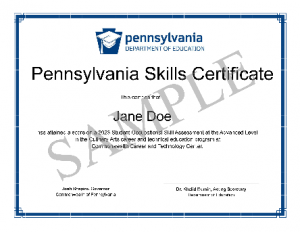 State CTE leaders utilize data as feedback to continuously improve systems, celebrate high-quality programs, and target areas for improvement. For example, the Pennsylvania Department of Education (PDE) utilizes NOCTI/NBS assessments and data for various purposes, including program evaluation, curriculum alignment, instructional improvement, professional development, and accountability. Learners meeting state-established benchmarks are eligible for the Pennsylvania Skills Certificate (PSC), recognizing individual advanced technical skill achievement.
State CTE leaders utilize data as feedback to continuously improve systems, celebrate high-quality programs, and target areas for improvement. For example, the Pennsylvania Department of Education (PDE) utilizes NOCTI/NBS assessments and data for various purposes, including program evaluation, curriculum alignment, instructional improvement, professional development, and accountability. Learners meeting state-established benchmarks are eligible for the Pennsylvania Skills Certificate (PSC), recognizing individual advanced technical skill achievement. High-quality CTE systems involve business/industry partners in verifying skills, ensuring learner assessments accurately reflect expertise. This practice not only benefits learners but also provides industry employees with an opportunity to contribute meaningfully to CTE schools and programs. As one evaluator recently summarized, “I am always willing to set time aside to work with these learners and programs, as this is the future of my industry–one that I care about and want to impact.”
High-quality CTE systems involve business/industry partners in verifying skills, ensuring learner assessments accurately reflect expertise. This practice not only benefits learners but also provides industry employees with an opportunity to contribute meaningfully to CTE schools and programs. As one evaluator recently summarized, “I am always willing to set time aside to work with these learners and programs, as this is the future of my industry–one that I care about and want to impact.”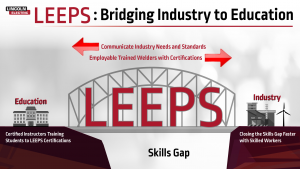 How do we continue progress in this country without the skilled tradespeople to do the job? It is ever more imperative that industry leaders and business owners need to work collaboratively with education institutions to ensure the training learners receive is in step with what the industry needs. While there are many paths to filling these jobs, from providing on-the-job training, upskilling current workers or adding automation to the production line, communication between Education facilities and industry must be ongoing to respond to constantly changing needs.
How do we continue progress in this country without the skilled tradespeople to do the job? It is ever more imperative that industry leaders and business owners need to work collaboratively with education institutions to ensure the training learners receive is in step with what the industry needs. While there are many paths to filling these jobs, from providing on-the-job training, upskilling current workers or adding automation to the production line, communication between Education facilities and industry must be ongoing to respond to constantly changing needs. When learners earn an industry certification, they’re not just earning a credential for their resume. They’re also potentially saving money on higher education. It’s no secret that pursuing higher education in the United States comes at a high cost to learners. According to
When learners earn an industry certification, they’re not just earning a credential for their resume. They’re also potentially saving money on higher education. It’s no secret that pursuing higher education in the United States comes at a high cost to learners. According to 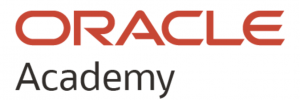 As Oracle’s global philanthropic educational program (FREE), Oracle Academy is open to educators around the world to advance technology education, skills, innovation, diversity and inclusion. We offer academic institutions and their educators free teaching and learning resources ― including curriculum, cloud, software and educator professional development ― that help prepare millions of learners with hands-on practice and career-relevant skills.
As Oracle’s global philanthropic educational program (FREE), Oracle Academy is open to educators around the world to advance technology education, skills, innovation, diversity and inclusion. We offer academic institutions and their educators free teaching and learning resources ― including curriculum, cloud, software and educator professional development ― that help prepare millions of learners with hands-on practice and career-relevant skills.
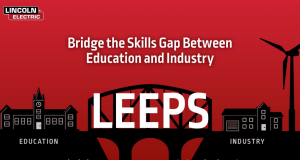 There is a welding skills gap, and that could actually mean a couple different things: It could mean there simply are not enough skilled welders to fill the welding careers available, or it could mean there is a disconnect between the skills employers are looking for and the skills applicants actually have. Either way, this gap existing is a real problem in the welding industry today—for both employers and job-seeking welders.
There is a welding skills gap, and that could actually mean a couple different things: It could mean there simply are not enough skilled welders to fill the welding careers available, or it could mean there is a disconnect between the skills employers are looking for and the skills applicants actually have. Either way, this gap existing is a real problem in the welding industry today—for both employers and job-seeking welders.  Skills Verification in the Digital Age
Skills Verification in the Digital Age Even before the current pandemic, there was a welding skills gap. That could actually mean a couple of different things: It could mean there simply are not enough skilled welders to fill the welding careers available, or it could mean there is a disconnect between the skills employers are looking for and the skills applicants actually have. Either way, this gap’s existence is a real problem in the welding industry today—for both employers and job-seeking welders.
Even before the current pandemic, there was a welding skills gap. That could actually mean a couple of different things: It could mean there simply are not enough skilled welders to fill the welding careers available, or it could mean there is a disconnect between the skills employers are looking for and the skills applicants actually have. Either way, this gap’s existence is a real problem in the welding industry today—for both employers and job-seeking welders. 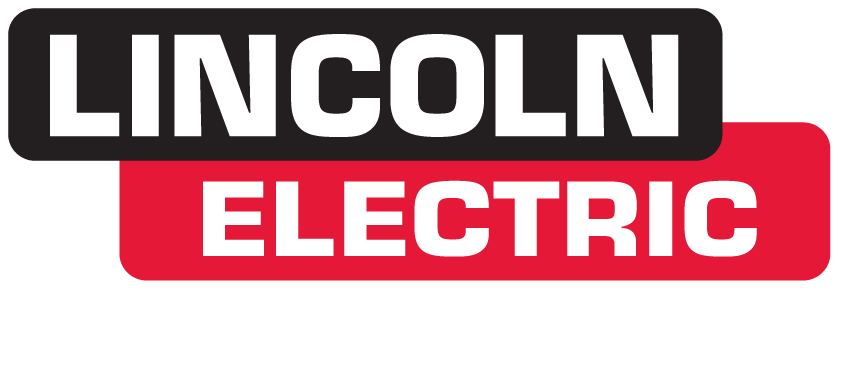 There is a welding skills gap, and that could actually mean a couple different things: It could mean there simply are not enough skilled welders to fill the welding careers available, or it could mean there is a disconnect between the skills employers are looking for and the skills applicants actually have. Either way, this gap existing is a real problem in the welding industry today—for both employers and job-seeking welders.
There is a welding skills gap, and that could actually mean a couple different things: It could mean there simply are not enough skilled welders to fill the welding careers available, or it could mean there is a disconnect between the skills employers are looking for and the skills applicants actually have. Either way, this gap existing is a real problem in the welding industry today—for both employers and job-seeking welders.